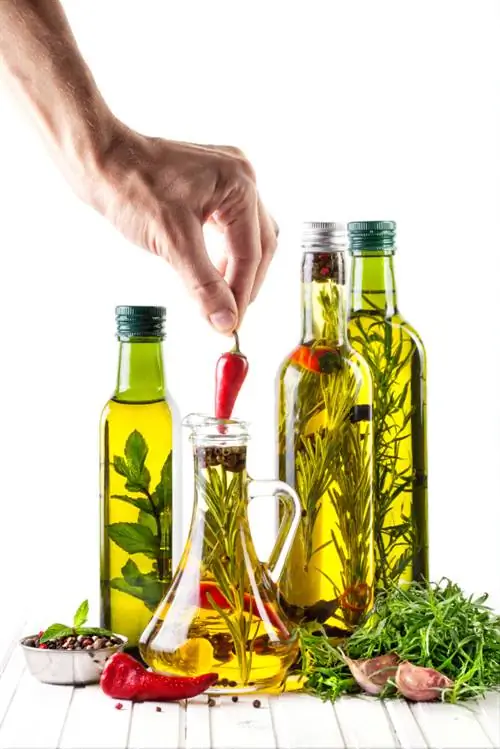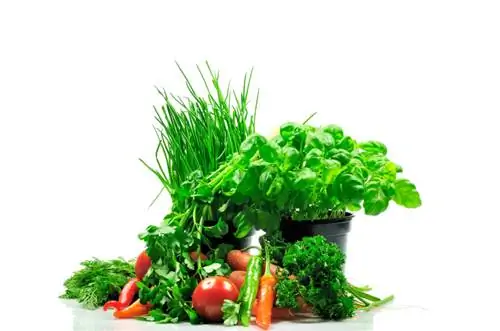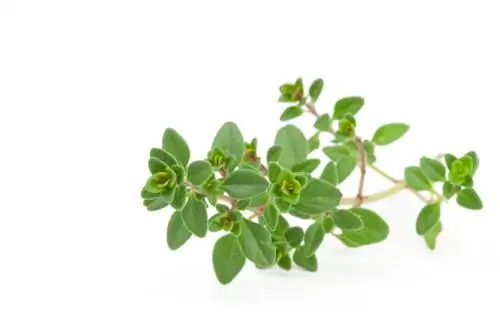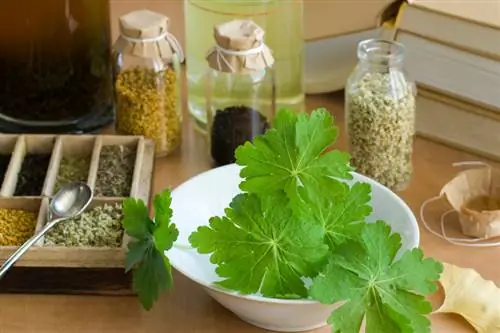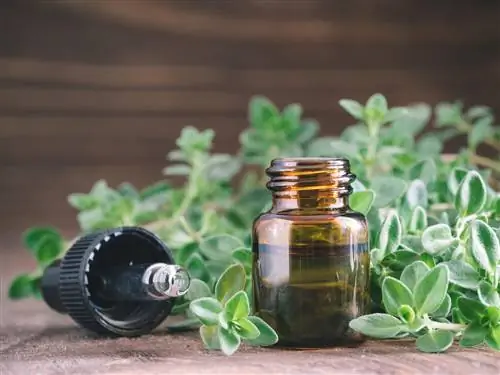- Author admin [email protected].
- Public 2023-12-16 16:46.
- Last modified 2025-01-23 11:20.
Thyme is not only highly valued as a herb in France. The very spicy herb not only gives hearty meat dishes, but also fish and vegetarian dishes an unmistakable note.
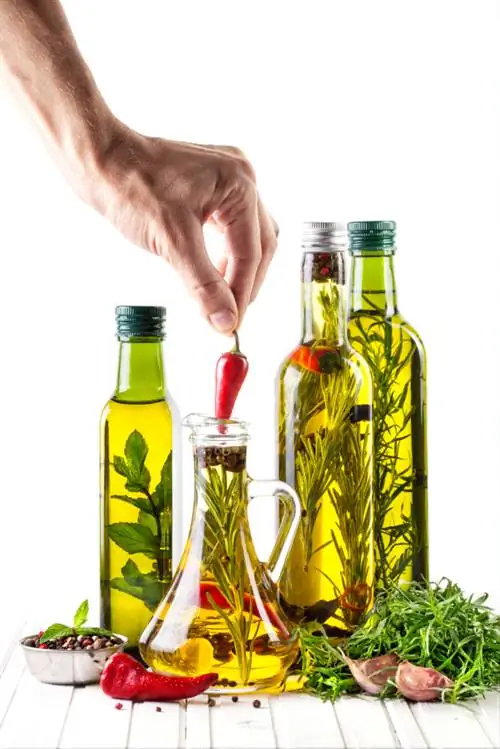
What can you use thyme for?
Thyme is mainly used in braised and oven dishes and goes well with meat, fish, summer vegetables, potatoes and stews. Add thyme at the beginning of the cooking time to develop its full aroma. Thyme is used medicinally for respiratory diseases and digestive problems.
Less known, however, is the healing power of thyme, especially real thyme. This was already recommended by the learned Abbess Hildegard von Bingen as a remedy for respiratory diseases and certain women's ailments. Due to an abortifacient effect (already known to ancient and medieval midwives), thyme should only be used in small doses by pregnant women, but not at all as a medicinal herb as a precaution.
Thyme in the kitchen
The Mediterranean herb has a characteristic, very spicy taste. Thyme is slightly spicy and also a little bitter. Some varieties can also have a sweeter taste. Both the intensity of the aroma and the aroma itself depend on the type of thyme used and the growing region. Lemon thyme, for example, provides a strong lemony note. In general, mountain thyme is more aromatic than thyme from the lowlands, in particular the field thyme known as thyme is quite sweet.
What does thyme go with?
Thyme is used fresh or dried, especially in braised and oven dishes. Dried thyme has a much greater flavor than fresh plant components. You can use both the leaves and the flowers. Thyme goes well with:
- Meat (braised dishes)
- Fish
- Summer vegetables such as: E.g. eggplant, zucchini, tomatoes, peppers
- Potatoes (baked potatoes, potato gratin or potato pancakes)
- Stews (bean, lentil, pea stews)
Add thyme to the desired dish at the beginning of the cooking time so that its aroma can fully develop.
Medicinal uses of thyme
The herb was voted medicinal plant of the year in 2006 - quite rightly so, because the thymol it contains, a component of the essential oil, has both an antibiotic and disinfectant effect. Thyme is basically a natural antibiotic that is used primarily for respiratory diseases due to its mucus-dissolving properties. Furthermore, thyme is also used for complaints in the gastrointestinal tract, because the abundance of tannins and bitter substances activates the bile and liver and alleviates digestive problems. That's why it's highly recommended to always add thyme to difficult-to-digest dishes with meat and/or cabbage.
Thyme tea for colds and coughs
If you have a persistent, dry cough, you can make thyme tea and drink about three to five cups of it daily. If possible, sweeten with honey, as this natural product also has a slight antibacterial effect.
- Crush 1 teaspoon of dried or approx. 8 to 10 sprigs of fresh thyme (per cup!)
- Alternatively, you can also use a mixture of thyme and sage (ratio approx. 3:1)
- fill the rubbed thyme into a tea strainer
- and scald with 250 milliliters of boiling water
- Let the tea steep for about eight to ten minutes.
Tips & Tricks
It is best to process fresh thyme after you have harvested it at lunchtime - at this time its content of essential oils and other active ingredients is highest.

